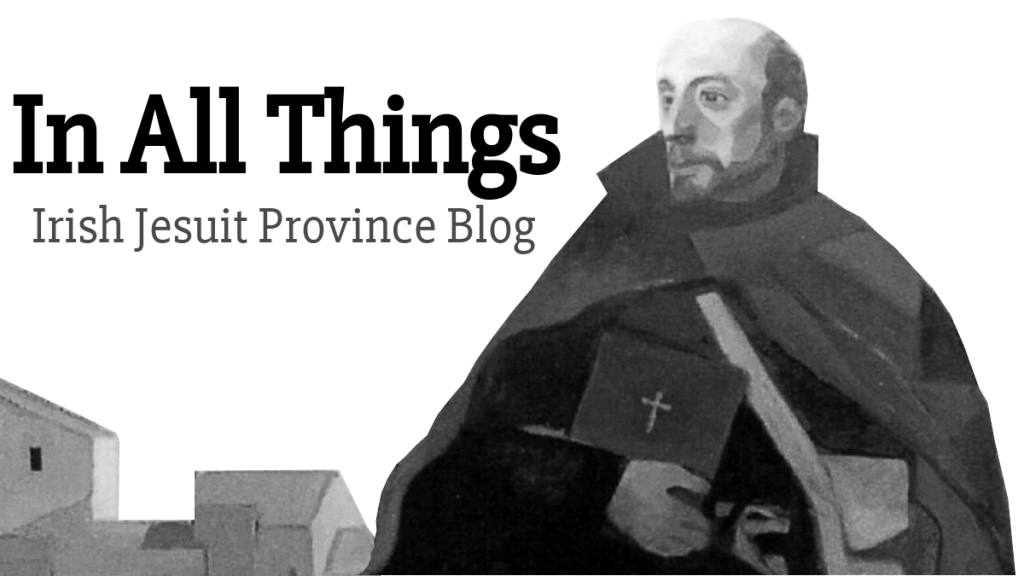Accepting limits: Obeying the body

Brendan McManus SJ :: There was an oak tree outside the nursing home where I used to do my morning meditation. It was so hard to pray in the chapel and it was only outside that I could get some peace and sense of God in nature. I found just simply doing deep breathing worked; get down into the ‘roots’ of my being and find that place of calm beneath the racing thoughts. The solidity of the tree and its implacable calm seemed to capture all that for me.
After surgery I was transferred to the Jesuit nursing home in Dublin, standard procedure for recuperating, though I was the youngest there. Initially I couldn’t understand why the nursing home had no lock on my room door. Little did I realise that this was to be central in terms of the nursing staff monitoring me and guiding my journey back to health. Such is the drive for independence and autonomy that admitting weakness or need proves very difficult.
The hardest this for me was having patience and allowing the body to heal. I so much wanted to be better, to be back at work, to be exercising, to be out socialising… anywhere but here, in fact, anywhere but in that painful in-between place which necessitated obedience to the body and the slow pace of gradual healing. And a big part of the learning, I’m afraid to say was making mistakes, pushing it too hard, getting exhausted and having the medical staff worried about me and pleading with me to take it easy. Walked too far, overextended myself and stretched myself thin, I played with fire and paid the price. One moment of medical minor crisis stays with me, which meant having to go back to the consultant for ‘emergency’ advice. I narrowly escaped a major setback but was chastised and purified in sticking to the humdrum flat routine. How could this be do difficult for me, someone of my age and so called ‘maturity’?
It was my first time for a major stay in hospital, first time for any major surgery and first time to be in any serious recuperation’. I was fortunate to have the Jesuit nursing home to help make that transition back to normal life. It provided a safe and supportive environment to remind me that I was a ‘patient (origen: “to undergo, suffer, bear”)’, that I was in recovery, and that I wasn’t well enough to go back to work. Still, as the youngest person there, it was hard to accept.
There’s something profound here about acceptance, accepting mortality, bodileness, and organic healing process. It does take time and patience, and forcing it as I have often done in my life actually does more harm than good, it set me back quite a bit. This was humbling to have to own up to overdoing it and to recommit to taking it easy and recovery, a ferocious slow down or de-acceleration, and ‘wise up’ moment that I found really challenging. Again, the nursing staff were so good, patient and kind, helping me to accept reality, concern etched in their faces.
It’s that terrible place of vulnerability and insecurity, it’s not easy to be in need, dependent, sick, a patient… it goes against everything that is self determined, in control, productive, worthwhile, contributing. In short, it is stripping back the layers of external things to who we really are: fragile creatures dependent on God and on others. Often we are just pretending self-containment, independence and self importance, until illness and vulnerability strike to wake us up.
It’s frightening just how fragile we are and how close to illness and breakdown. Normally we do everything we can to avoid it, keeping busy, distracted, numbing the pain, procrastination etc. but when you are ill there’s no choice, it is staring you in the face: mortality, limitation, weakness and even death. It’s not pretty but it is real…
I had great respect for the mainly Jesuit residents who largely were accepting old age and sickness with grace and humility. It was an honour to live aside then, to share their space and inhabit their world. It a funny way it felt like a like of preparation; knowing what was coming down the line and asking huge questions of me, are you ready, you know what’s ahead of you, can you really live now, can you see beyond these broken bodies to the unquenchable spirit of the person. How free are you really?
The nursing staff were exceptional, so warm, attentive and compassionate that I realised I could learn a thing or two about vocation from them. I was continually amazed how they were continually cheery and in good humour, regardless of how grumpy or unpleasant (even me at times!) people were. They were the people that held the place together and made the sun shine a little brighter with a smile or laugh, so I thank them for that.
It has made me more reflective, philosophical about life and more dedicated to discernment and prayer; what else do we have. Also, more determined to live whatever years are left to me to the full; to be grateful and not take anything for granted, to live and savour the fullness knowing that it will not last, and finally that I’m on the journey home and the possibility of full completeness awaits.
What I learned:
- God is in the reality, the challenging engagement with the real
- I was being purified in the invitation to slow down and accept what is real (this is Ignatian freedom, letting go of compulsions and expectations)
- God was teaching me and leading me through this difficult experience
- This is a ‘cross’ experience of struggle and awakening to a new reality
- Mortality is to the fore and the nature of faith and the nature of God


